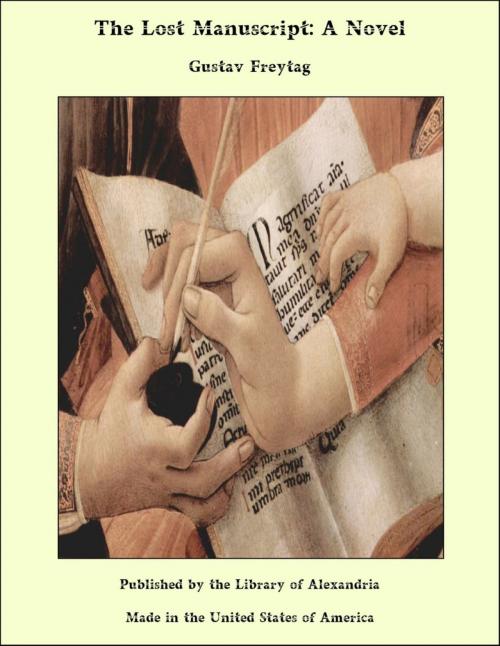The Lost Manuscript: A Novel
Nonfiction, Religion & Spirituality, New Age, History, Fiction & Literature| Author: | Gustav Freytag | ISBN: | 9781465548986 |
| Publisher: | Library of Alexandria | Publication: | March 8, 2015 |
| Imprint: | Language: | English |
| Author: | Gustav Freytag |
| ISBN: | 9781465548986 |
| Publisher: | Library of Alexandria |
| Publication: | March 8, 2015 |
| Imprint: | |
| Language: | English |
A noble human life does not end on earth with death. It continues in the minds and the deeds of friends, as well as in the thoughts and the activity of the nation. This idea of the continuity and preservation of soul-life permeates the whole work. It meets us at every hand. We observe the professor in his study, ever eager to fathom the thoughts of the great thinkers of the past and imbuing his students with their lofty spirit. We sympathize with the heroine of this novel, the strong, pious Saxon maiden, in her religious and intellectual development; we behold her soul enlarging under the influence of unusual and trying situations; we watch her mentally growing amid the new ideas crowding in upon her. We enjoy the droll characterizations of the half-educated, of Mrs. Rollmaus and the servants, in whose minds the mysteries of soul-life appear in the shape of superstitious notions. And we see, again, the consequences of wrong-doing, of errors, and of mistakes continuing like a heavy curse, depressing the mind and hindering its freedom. And this last provokes a wholesome reaction and is finally conquered by unshirking courage in honest spiritual combat. "What a man's own life accomplishes in the formation of his character, and the extent to which it fully develops his native capacities, we observe and estimate even in the best cases only with imperfect knowledge. But still more difficult is it to determine and comprehend what the living have acquired in the way of advancement and hindrance from their parents and ancestors; for the threads are not always visible that bind the existence of the present to the souls of generations past; and even where they are discernible, their power and influence are scarcely to be calculated. Only we notice that the force with which they operate is not equally strong in every life, and that sometimes it is too powerful and terrible
A noble human life does not end on earth with death. It continues in the minds and the deeds of friends, as well as in the thoughts and the activity of the nation. This idea of the continuity and preservation of soul-life permeates the whole work. It meets us at every hand. We observe the professor in his study, ever eager to fathom the thoughts of the great thinkers of the past and imbuing his students with their lofty spirit. We sympathize with the heroine of this novel, the strong, pious Saxon maiden, in her religious and intellectual development; we behold her soul enlarging under the influence of unusual and trying situations; we watch her mentally growing amid the new ideas crowding in upon her. We enjoy the droll characterizations of the half-educated, of Mrs. Rollmaus and the servants, in whose minds the mysteries of soul-life appear in the shape of superstitious notions. And we see, again, the consequences of wrong-doing, of errors, and of mistakes continuing like a heavy curse, depressing the mind and hindering its freedom. And this last provokes a wholesome reaction and is finally conquered by unshirking courage in honest spiritual combat. "What a man's own life accomplishes in the formation of his character, and the extent to which it fully develops his native capacities, we observe and estimate even in the best cases only with imperfect knowledge. But still more difficult is it to determine and comprehend what the living have acquired in the way of advancement and hindrance from their parents and ancestors; for the threads are not always visible that bind the existence of the present to the souls of generations past; and even where they are discernible, their power and influence are scarcely to be calculated. Only we notice that the force with which they operate is not equally strong in every life, and that sometimes it is too powerful and terrible















